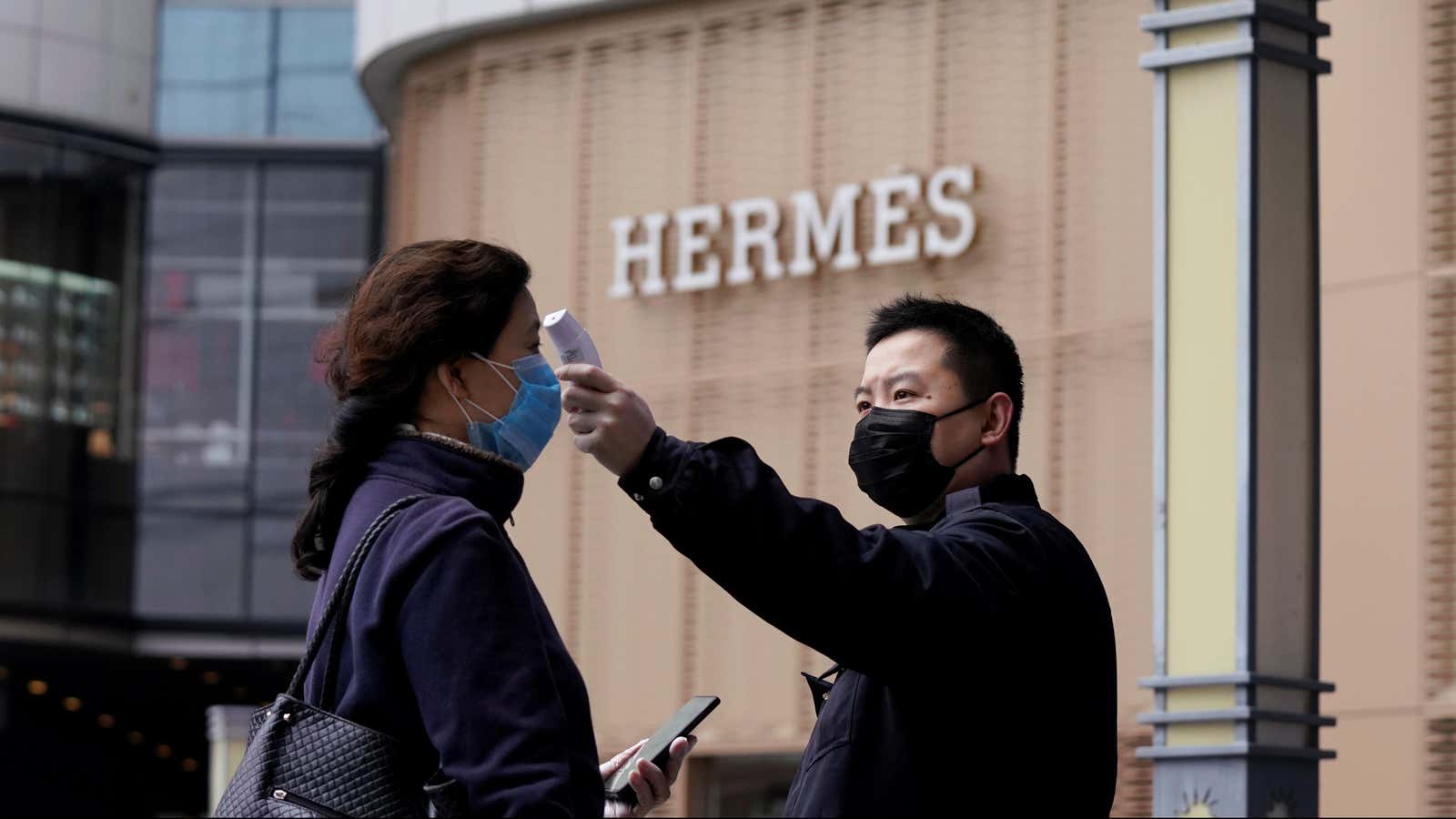If there’s one country luxury businesses can’t live without these days, it’s China. The importance of Chinese shoppers to the industry became plain when Covid-19 shut down much of China and its outbound travel in February. Without those customers, luxury companies saw their sales plummet.
The pandemic isn’t likely to halt luxury’s growing dependence on China either. On the contrary, it looks set to increase it.
Because of Covid-19, the luxury industry is bracing for its worst year in modern history. But while China’s luxury market has certainly suffered, it’s already on its way to recovery, according to a new report (pdf) by management consultancy Bain & Company and Altagamma, an association of Italian luxury firms.
Chinese shoppers, who are the world’s biggest luxury buyers including purchases made inside and outside their country, have a bigger appetite for luxury than their American and European counterparts. One Hermès store in Guangzhou recently brought in $2.7 million in sales in a single day, fashion trade outlet WWD reported (paywall). The US and Europe, on the other hand, have seen an even greater impact from the pandemic and face a slower return to normalcy, Bain and Altagamma predict.
A faster economic recovery in China than in the US and Europe could fuel the discrepancy. “The Chinese economy should be the least damaged from the crisis,” Luca Solca, a luxury analyst at investment firm Bernstein, told McKinsey and Business of Fashion in a report on the state of fashion after coronavirus. He predicted Chinese luxury shoppers would become “even more important.”
Bain and Altagamma estimate by 2025 Chinese shoppers’ importance to luxury will be even greater. By then they will account for nearly half of global luxury purchases, up from about 35% in 2019. Other nations are expected to see their shares drop.
Claudia D’Arpizio, a partner at Bain and leader of its luxury practice, explained in an email that ongoing restrictions on international travel will also prompt Chinese consumers to make more of their purchases domestically. “This trend, coupled with a growing customer base fueled by the Chinese middle class, and specifically digital-native younger generations, will lead China to become the first market for luxury by 2025,” she said.
Currently more luxury shopping still happens in the US and Europe. Even Chinese shoppers still do most of their luxury buying abroad, where prices can be much lower. But a growing share have been shopping within China. The Chinese government has worked to bring spending home by cutting duties and cracking down on overseas agents called daigou who buy goods abroad and ship them to buyers in China. Fashion companies have also responded by lowering prices slightly in China.
Bain and Altagamma predict shopping within China will surge in the years ahead. By 2025, they foresee more purchases happening in China than in Europe and the US.
